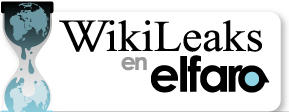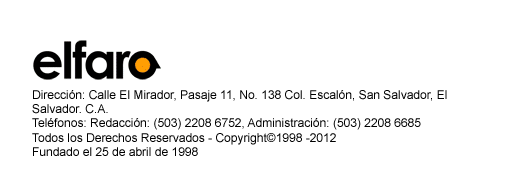CONGRESS PULLS BACK FROM THE BRINK ON REMOVING PRESIDENT ZELAYA
Publicado el 1 de Junio de 2011
id: 214237
date: 6/26/2009 20:11
refid: 09TEGUCIGALPA501
origin: Embassy Tegucigalpa
classification: CONFIDENTIAL
destination:
header:
VZCZCXRO0312
OO RUEHAO RUEHCD RUEHGA RUEHGD RUEHHA RUEHHO RUEHMC RUEHMT RUEHNG
RUEHNL RUEHQU RUEHRD RUEHRG RUEHRS RUEHTM RUEHVC
DE RUEHTG #0501/01 1772011
ZNY CCCCC ZZH
O 262011Z JUN 09
FM AMEMBASSY TEGUCIGALPA
TO RUEHC/SECSTATE WASHDC IMMEDIATE 9958
INFO RUEHWH/WESTERN HEMISPHERIC AFFAIRS DIPL POSTS PRIORITY
RUEHZA/WHA CENTRAL AMERICAN COLLECTIVE PRIORITY
RUEHUB/USINT HAVANA PRIORITY 0173
RUMIAAA/USSOUTHCOM MIAMI FL PRIORITY
RUEKJCS/SECDEF WASHDC PRIORITY
RHEHNSC/NSC WASHDC PRIORITY
RUEHLMC/MILLENNIUM CHALLENGE CORP WASHINGTON DC PRIORITY 1037
RUEKJCS/JOINT STAFF WASHDC PRIORITY
RUMIAAA/HQ USSOUTHCOM J5 MIAMI FL PRIORITY
RUEIDN/DNI WASHINGTON DC PRIORITY
RHMFISS/DIRJIATF SOUTH PRIORITY
RHEFDIA/DIA WASHINGTON DC PRIORITY
RUEATRS/DEPT OF TREASURY WASHDC PRIORITY
RUEAIIA/CIA WASHDC PRIORITY
RUEAHND/CDRJTFB SOTO CANO HO PRIORITY
RUMIAAA/CDR USSOUTHCOM MIAMI FL//CINC/POLAD// PRIORITY
RUMIAAA/CDR USSOUTHCOM MIAMI FL PRIORITY
RHMFISS/HOMELAND SECURITY CENTER WASHINGTON DC PRIORITY
----------------- header ends ----------------
C O N F I D E N T I A L SECTION 01 OF 02 TEGUCIGALPA 000501
SIPDIS
STATE FOR WHA/CEN
WHA/FO FOR A/S SHANNON AND DAS DAVE ROBINSON
E.O. 12958: DECL: 06/26/2019
TAGS: PGOV, PREL, HO
SUBJECT: CONGRESS PULLS BACK FROM THE BRINK ON REMOVING
PRESIDENT ZELAYA
TEGUCIGALP 00000501 001.2 OF 002
Classified By: Ambassador Hugo Llorens for reasons 1.4 (b & d).
1. (C) Summary: On the evening of June 25, the National
Congress came close to bringing to the floor a vote on the
removal of President Zelaya from office. The Ambassador
strongly advised Congress President Micheletti against such
hasty action that could plunge Honduras into a deeper
constitutional crisis. Other senior politicians also worked
behind-the-scenes to push Congress back from the brink. In
the end, congressional leaders backed away from the vote and
limited themselves to launching an inquiry into legal
violations that may have been committed by President Zelaya
and his Administration. Supreme Court President Rivera told
us that Congress does not have the power to impeach the
President, since the repeal of such a law in 2005.
Currently, the only means to remove a sitting President is
through the filing of a criminal case filed by the Public
Ministry with the Supreme Court itself. End Summary.
2. (C) On the evening of June 25, Congress President Robert
Micheletti called the Ambassador to inform him that with the
strong support of the Honduran political parties (including
the two major parties ) Liberal and National), the National
Congress had begun a formal debate to consider removing
President Zelaya from office. Micheletti said that Congress
would deliberate and review legal violations committed by the
President and his Administration during his term of office.
He said that the President's illegal decision to fire Armed
Forces Chief Romeo Vasquez had been the immediate catalyst of
the Congressional action. He said he believed that he had
the votes to take this definitive action against the
President. Micheletti said he wanted the United States to be
informed of the Congressional deliberations and likely
action. The Ambassador responded that while the USG had
great respect for the Honduran Congress and would not ever
attempt to tell the sovereign legislators what they should
do, our view was that this action seemed totally premature,
was dangerous and could precipitate a major constitutional
crisis in Honduras with uncertain results. The Ambassador
spoke of the high tension prevailing in the country and said
the potential for social conflict and violence was high. Any
hasty action by the Congress against a democratically-elected
President was an extremely serious matter that could be
viewed in a very critical manner by many in the international
community. The Ambassador also noted that the OAS's
Permanent Council was scheduled to discuss and debate the
situation in Honduras tomorrow. He noted that while some
people in the country were unsatisfied by the GOH's
manipulation of the OAS's role in the June 28 poll, OAS
involvement could be supportive of finding a legal,
constitutional and peaceful way out of the crisis.
3. (C) Micheletti responded that President Zelaya was bent on
bringing down the democratic system in Honduras. He noted
that earlier that day Zelaya had threatened to shutdown the
Congress and to put him in jail. He said that Zelaya had
completely alienated the Honduran Congress and that the
President had virtually no/no support. Micheletti
appreciated the Ambassador's honest advice but felt that the
moment for decision had arrived. The Ambassador again warned
that such rash action could result in incalculably negative
consequences in Honduras and advised patience and calm.
Later the Ambassador made calls to several key Liberal Party
leaders including Presidential candidate Elvin Santos and
Former President Carlos Flores and conveyed our concern about
the ongoing deliberations in Congress. Both agreed that
Congress' action seemed rash and irrational, but both said
that Zelaya's increasing radical rhetoric and actions, his
willingness to push for a poll that was clearly illegal, and
his firing of the military high command had alienated the
TEGUCIGALP 00000501 002.2 OF 002
Congress. However, Santos and Flores said they were also
trying to influence key congressional leaders, including
Micheletti (who both described as stubborn), and would
continue to make calls that evening. Later that evening we
learned that following private consultations between the
leaders of the different parties and delegations, an
agreement was reached to avoid a floor vote on whether to
remove the President. Instead, Congress voted to launch an
investigation of the President's misdeeds with the purpose of
considering some future action by the Congress.
4. (C) In a meeting on June 25, Honduran Supreme Court
President Jorge Rivera Aviles told the Ambassador that he was
extremely worried about the planned Congressional action
against the President. Rivera said that congressional
leaders had approached him about their plans to remove the
President. Rivera said he advised against such action, which
he described as illegal. Rivera said that in 2005 the
Congress had repealed the impeachment law. Currently the
only means to remove a President was through the filing of a
criminal case by the Public Ministry (Attorney General) with
the Supreme Court. In such circumstances, the Supreme Court
would appoint a Supreme Court Magistrate to hear the case. A
ruling by the Magistrate against the President represented
the only means to legally separate him/her from the office.
Rivera said the Public Ministry might opt to move against
Zelaya if he goes forward with direct support for the June
28, which a judge has ruled as illegal.
5. (C) Comment: Zelaya's decision to fire General Vasquez
has further polarized Honduras and has radicalized
anti-Zelaya sentiment in Congress and many public
institutions including the judiciary and the armed forces.
Fortunately, the decision by congressional leaders to pull
back from the brink of a constitutional crisis provides a
reprieve that hopefully can help ease the tensions from their
current fever pitch. In a conversation with the Ambassador
on June 25, Zelaya seemed to be more aware of his increasing
isolation and vulnerability. The Ambassador took the
opportunity to encourage him to do use his role as President
of "all Hondurans" to do everything he could to lower the
tensions and send conciliatory public messages, and engage in
dialogue with the opposition.
LLORENS
=======================CABLE ENDS============================




